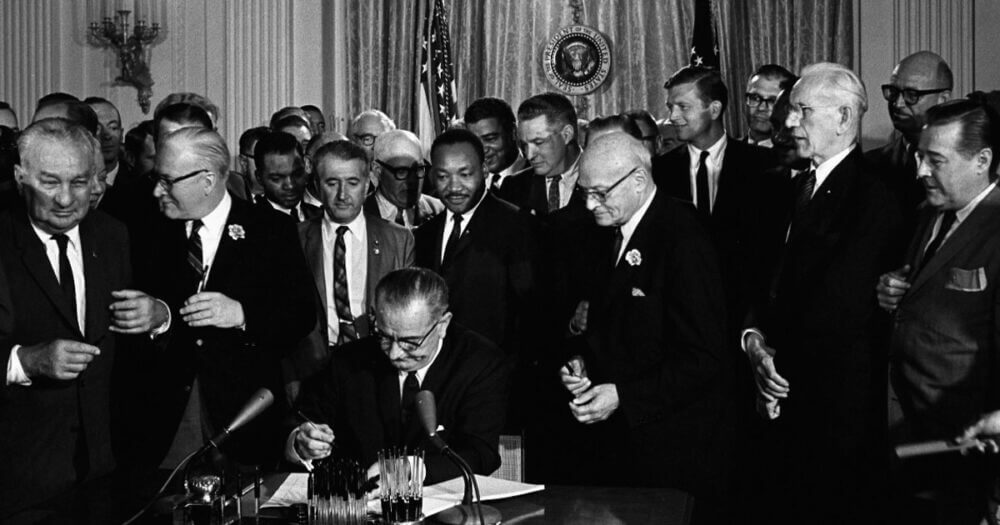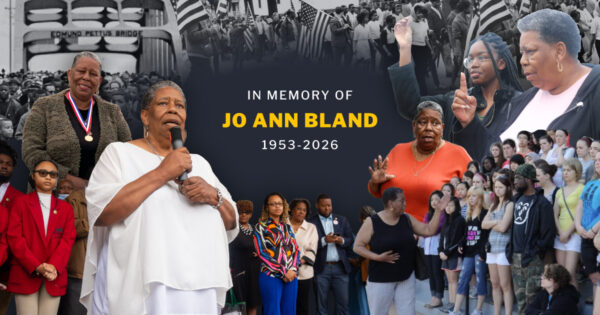Voting Rights Act of 1965: The Crown Jewel of the Civil Rights Era

The Voting Rights Act of 1965 was one of the most important laws passed in the civil rights era.
The Voting Rights Act of 1965 (VRA) was signed into law on August 6 by President Lyndon B. Johnson, not long after civil rights activists in Selma successfully marched to Montgomery.
The law was considered the crown jewel of the civil rights era because it guaranteed voting rights to all citizens, regardless of race or ethnicity, and created political opportunities for Black and Brown communities to fully participate in the political system on an equal footing with others.
Before the VRA was signed, states deliberately defied court rulings and implemented measures like poll taxes and literacy tests to prevent Black people from voting. As a result, Black the political power of Black communities was effectively non-existent, even in areas where they held the majority.
The VRA stopped states from enacting voting policies that were racially discriminatory. By the early 1970s, disparity in registration rates between white and Black voters dropped from nearly 30% in the early 1960s to 8%. The law also enabled the election of hundreds of federal, state, and local candidates of color in states with a history of discrimination like Alabama. In 2008, Black voter turnout was nearly equal to that of white voters for the first time, and the first Black president Barack Obama was elected.
Still, decades of backlash to the VRA and other legislative victories made by the civil rights movement have slowly whittled away at the progress made, and in recent years, those attacks reached a highpoint.
In 2010, state legislatures started passing measures under the guise of protecting elections against voter fraud – rolling back early voting, eliminating same-day registration, disqualifying ballots filed outside home precincts and creating demands for photo ID at polling places, all of which negatively impacts Black voters.
In 2013, the Supreme Court struck down a key part of the VRA, leading to 29 states passing 94 laws over the next decade that make it more difficult to vote, especially in communities of color.
As a result, in Alabama in 2020, turnout in Black-majority Selma was just 57%, among the worst in the state.
Sign up and stay connected!
Sign up today and stay up to date on the latest news from our team and how you can get involved.


